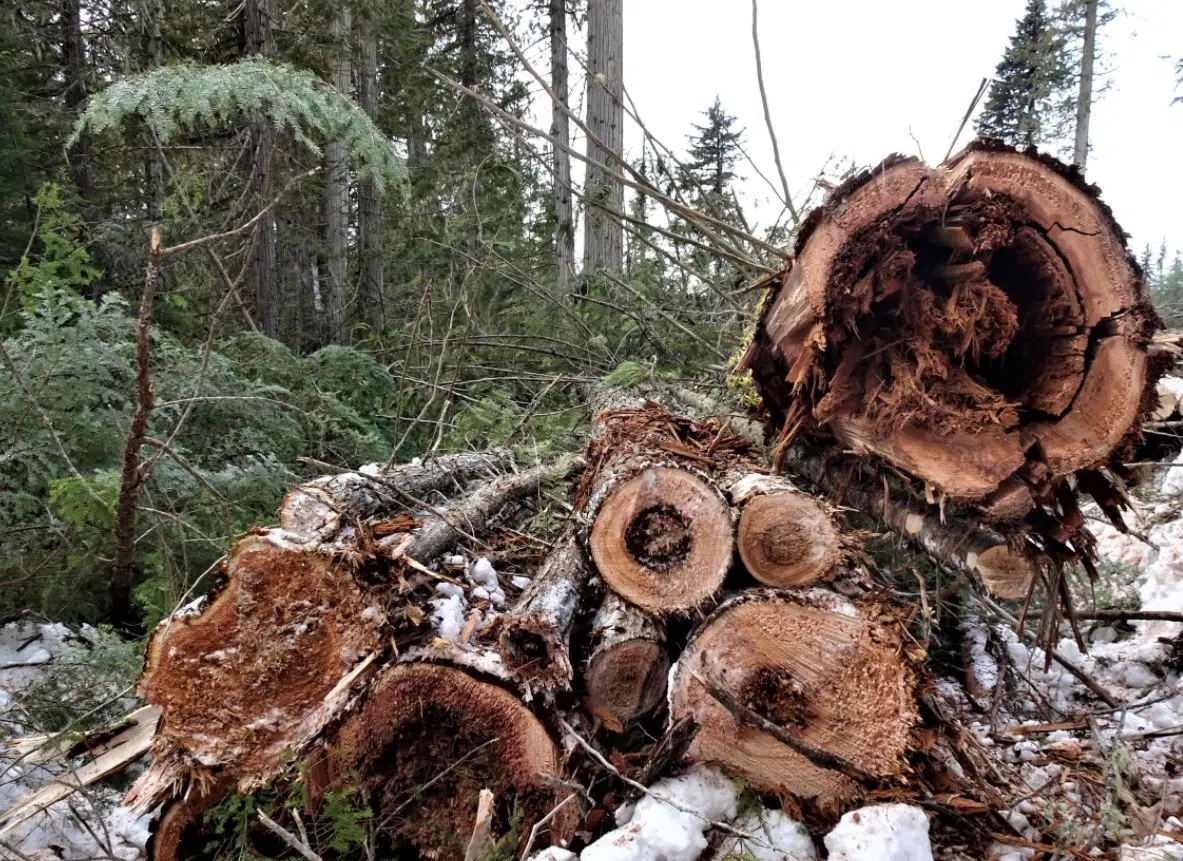
The Mayor of Clearwater says he remains optimistic about the future of forestry in the North Thompson Valley.
Merlin Blackwell says its because of the cedar-hemlock forests in the area – low quality timber which he says will make for good quality fibre.
“It could really open up some opportunities for both Interfor, Domtar, as well as community forests and the Simpcw First Nation,” he said.
Blackwell says while there may not be the demand for lumber like there once was, it doesn’t mean there isn’t a need for wood products in B.C. and across Canada. He was speaking on NL Newsday, one day after the BC Council of Forest Industries’ Annual Convention, that was held last Thursday.
“The one interesting comment that the Premier [John Horgan] did make was that there is a lack of fibre out there in the world and there is no magical way to do that,” Blackwell said. “Well, we’ve got [the cedar-hemlock partition up here] that we will hopefully try to get his attention on.”
“We need the province to look at this real unique situation here to keep things going for quite a few years and keep few of our loggers going hauling this mostly hollow and rotten cedar and hemlock out of the forest which needs to be replanted anyway.”
Just recently, a partnership between the Wells Gray Community Forest and Arrow Transportation saw 18,992 cubic metres of unusable wood fibre – about 350 logging trucks-worth – ground into hog fuel and hauled out of the area. It was taken to the Domtar Mill in Kamloops to generate electricity to run operations with any excess electricity going back to the grid.
“Early in my forestry career, I had contracts to burn slash piles like this. With the introduction of boilers that use this wood fibre, we now take this fibre we once burned and use it to create electricity,” said Arrow Transportation’s Greg Kilba. “Together, we figured we could make economic sense of the project if we applied to the [Forest Enhancement Society of British Columbia (FESBC)] for a grant.”
“With the good news of an approval of a grant for $720,748, we developed a project plan for approximately $307,000 for the Wells Gray Community Forest, then got to work. Without this funding, piles of fibre would have otherwise been burned on site.”
In a statement, George Brcko, the General Manager of the Wells Gray Community Forest noted the removal of the leftover fibre will reduce the chance of a catastrophic wildfire in the area.
“Without FESBC filling the gap financially, this project would not have happened,” he said. “This kind of collaboration and support of community forests is the way of the future and I believe just the tip of the iceberg in forest stewardship as we all work to do things better.”
(Photo via FESBC)















